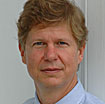In the United States, we are looking toward a new day in Washington, and (we hope) throughout the whole world.
Barack Obama comes into office with extraordinary gifts, but also with outsized expectations. For those people of faith among us who worked for his election, however, we have some adjustments to make–from being out of favor with those in power and out of step with the prevailing political culture to having “our man” in the White House.
And for people of faith–especially clergy–that, alas, is where danger lurks.
Let me put the matter succinctly. My study of American history persuades me that religion functions best on the margins of society and not in the counsels of power. Whenever people of faith hanker after political access or influence, they lose their prophetic voice.
The best example that comes to mind of clerical detachment from the lures of political power and influence was Martin Luther King Jr. The civil rights struggle clearly received its power and energy from religious principles, but King was careful never to pander to power. He welcomed the (unlikely) support of Lyndon Johnson in pushing through Congress the Civil Rights Act of 1964 and the Voting Rights Act of 1965. In those initiatives, King and Johnson forged a powerful alliance that changed the course of history.
But King refused to allow his relationship with Johnson to cloud his moral judgment. In April 1967, not quite two years after he and Johnson had worked together to pass the Voting Rights Act, King stood in the pulpit of Riverside Church and issued a stinging condemnation of the war in Vietnam, which had become the tragic hallmark of the Johnson presidency. “I come to this magnificent house of worship tonight because my conscience leaves me no other choice,” King said. “A time comes when silence is betrayal.”
People of faith must always situate themselves outside the counsels of power, lest they be co-opted by the powerful. In his classic book Violence, Jacques Ellul put the matter starkly. The believer must always take the part of those who are powerless. And if a “regime change” should occur, the Christian immediately shifts his allegiance to the party out of power.
That may be an overstatement, but Ellul clearly had a point. Those of us who worked for and applauded the election of Barack Obama must now hold him to account for his promises and for the refreshingly lofty ideals he articulated during the course of the campaign.
In many ways, our real work has just begun.

